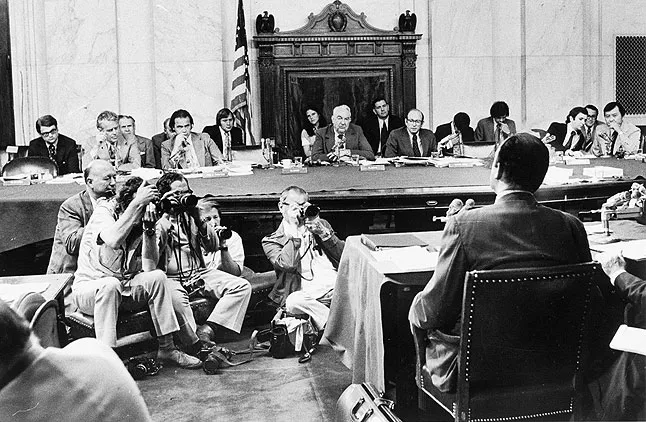Political scandals often have profound effects on public trust in government and political institutions. These scandals, ranging from corruption and misuse of power to ethical breaches, can erode confidence in elected officials and democratic processes. This article explores how political scandals impact public trust, examining the mechanisms through which scandals influence perceptions of governance and the potential consequences for democratic institutions.
Understanding Political Scandals
1. Definition and Types
Political Scandals:
Political scandals are events or actions involving politicians or public officials that involve unethical behavior, legal violations, or breaches of public trust. They often capture media attention and provoke widespread public outrage.
Types:
Common types of political scandals include:
- Corruption: Involves bribery, embezzlement, or illegal financial transactions.
- Ethical Breaches: Includes conflicts of interest, sexual misconduct, or abuse of power.
- Legal Violations: Entails breaking laws or regulations, such as campaign finance violations or obstruction of justice.
2. Causes and Triggers
Openness and Accountability:
Scandals often arise when there is a lack of transparency or accountability. Insufficient oversight and weak institutional checks can create opportunities for misconduct.

Media Exposure:
The role of media in exposing scandals is crucial. Investigative journalism and public disclosures can bring hidden issues to light, leading to scandals that impact public perceptions of governance.
Impact on Public Trust
1. Erosion of Confidence
Distrust in Institutions:
Political scandals can lead to a significant erosion of trust in government institutions. When scandals involve high-profile officials, public confidence in the effectiveness and integrity of these institutions can diminish.
General Skepticism:
Scandals can foster a general sense of skepticism about the political system. Citizens may question the motives and actions of all politicians, even those not directly involved in the scandal.
2. Effects on Political Participation
Voter Apathy:
Scandals can result in voter apathy, where citizens become disillusioned with politics and disengage from the electoral process. This disengagement can reduce voter turnout and undermine democratic participation.
Reduced Support for Parties:
Political parties associated with scandals may suffer from decreased support. Voters may switch allegiance to other parties or candidates, leading to shifts in political power and influence.
3. Impact on Political Leaders
Damage to Reputations:
Politicians involved in scandals often face significant reputational damage. The negative publicity can affect their career prospects, influence their ability to govern, and impact their public image.
Challenges to Legitimacy:
Scandals can challenge the legitimacy of political leaders. Elected officials who are embroiled in scandals may face calls for resignation or impeachment, questioning their right to hold office.
Case Studies of Political Scandals
1. Watergate Scandal (United States)
Overview:
The Watergate scandal, involving the Nixon administration’s illegal activities and cover-up efforts, led to President Richard Nixon’s resignation in 1974. The scandal significantly damaged public trust in the U.S. government.
Consequences:
The scandal resulted in increased scrutiny of government actions, the introduction of new ethics rules, and a lasting impact on the political culture, highlighting the need for transparency and accountability.
2. The Enron Scandal (United States)
Overview:
The Enron scandal involved accounting fraud and corporate misconduct, leading to the company’s bankruptcy in 2001. The scandal had widespread repercussions, including regulatory reforms in corporate governance.
Consequences:
The scandal eroded trust in corporate and financial institutions, led to the enactment of the Sarbanes-Oxley Act, and highlighted the need for stronger oversight and ethical standards in business practices.
3. The “Cash for Questions” Scandal (United Kingdom)
Overview:
The “Cash for Questions” scandal involved allegations that British MPs were paid to ask questions in Parliament on behalf of business interests. The scandal in the late 1990s led to widespread public outrage and legal consequences.
Consequences:
The scandal resulted in increased focus on parliamentary ethics and led to reforms aimed at improving transparency and preventing similar abuses of power.
Strategies for Rebuilding Trust
1. Strengthening Oversight and Transparency
Enhanced Accountability:
Implementing stronger oversight mechanisms and promoting transparency can help rebuild public trust. This includes regular audits, clear reporting procedures, and accessible information for the public.
Institutional Reforms:
Reforming institutions to improve checks and balances can prevent future scandals. Establishing independent bodies to oversee political and administrative processes can enhance accountability and restore confidence.
2. Effective Crisis Management
Responsive Communication:
Political leaders and institutions should respond quickly and transparently to scandals. Effective communication, acknowledging issues, and outlining corrective actions can help manage public perception and rebuild trust.
Apologies and Reforms:
Issuing sincere apologies and implementing reforms to address the root causes of scandals can demonstrate a commitment to change and restore public confidence in the system.
3. Promoting Ethical Standards
Ethics Training:
Providing ethics training for public officials and employees can help prevent misconduct. Establishing clear codes of conduct and enforcing ethical standards can support a culture of integrity and responsibility.
Public Engagement:
Engaging with the public to address their concerns and involving them in decision-making processes can help rebuild trust. Transparency in policy-making and responsiveness to public feedback are crucial for restoring confidence.
Conclusion
Political scandals significantly impact public trust in governance, leading to decreased confidence in institutions, voter apathy, and damage to political leaders’ reputations. Addressing these issues requires strengthening oversight and transparency, effective crisis management, and promoting ethical standards. By taking proactive measures to rebuild trust and prevent future scandals, democratic institutions can maintain their legitimacy and effectiveness in serving the public.

